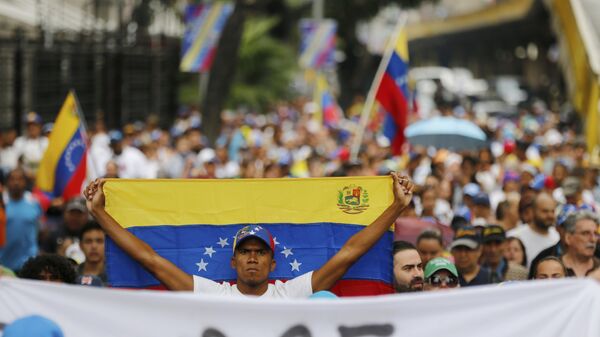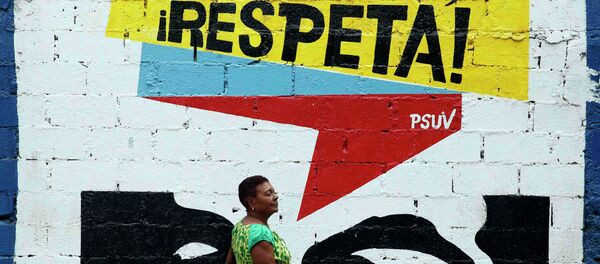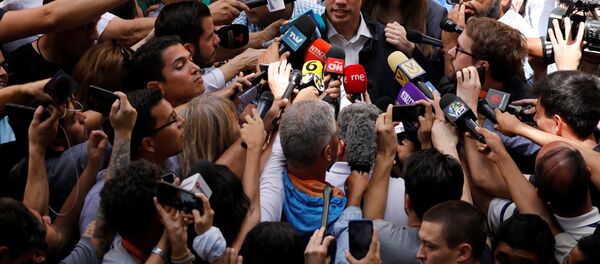Sputnik has discussed the statement with Stephen Morris, Professor of Political Science and International Relations at Middle Tennessee State University, who signed an open letter calling on the Trump administration to "cease interfering in Venezuela's internal politics".
Sputnik: What do you make of this comment that "every option is on the table" in regards to Venezuela? And do you foresee a situation where the US would actually take military action in Venezuela?
Sputnik: So that's a very interesting thought you said that where the US was involved in creating the crisis. Do you feel the US has played a role in the development of the Venezuelan crisis?
Stephen Morris: Oh absolutely. There's plenty of blame placed on the Maduro government. There's no doubt about that. There's no doubt it's a semi-authoritarian government, at best. But the United States has had sanctions on Venezuela since 2015, going back to the Obama administration, and they've tightened those sanctions more recently.
READ MORE: EU Requests Immediate Release of Journalists Detained in Venezuela — Mogherini
So it seems almost paradoxical that the United States claims to be concerned about the humanitarian crisis but at the same time is contributing to that humanitarian crisis. If they wanted to alleviate the humanitarian crisis then they could let up on the sanctions and try to work with the Maduro government.
Sputnik: What interest, financial, political otherwise does the US have in Venezuela, other than that 500,000 barrels of oil they're purchasing currently every day?
Sputnik: John Bolton was spotted holding up a notebook with the words 5,000 troops to Colombia. What do you make of that? And what should be made of that?
Sputnik: Bolton did say that Washington is interested in the political outcomes in Venezuela because of its oil reserves. What do you make of the character of that comment and also there have been meetings ready between high-ranking US officials and Juan Guaido, what do you make of that situation?
Stephen Morris: Well, it's a rather bold and honest statement to say that the issue is oil. The United States will certainly and has to a certain extent tried to frame this as an issue of democracy and the suffering of the Venezuelan people, and treating it as they tend to do. They will magnify the crisis and kind of what we call the devil theory of politics, give the impression that Maduro is a dictator that stands in the way of democracy and prosperity for all of Venezuela, saying things are less complicated than they actually are.
READ MORE: US Sanctions Won't Stop Venezuela, But Still Do Damage — Governor of Miranda
I think one of things that you mention very quickly, we have seen reports that the United States was meeting with Juan Guaido prior to Guaido declaring himself interim president. So to the extent that the United States may have been behind a lot of this and orchestrating this manoeuver of creating "a legitimate" government with Guaido and breaking off diplomatic relations with the Maduro government. The United States may have been behind this to a certain extent for a long time.
The views expressed in this article are solely those of Stephen Morris and do not necessarily reflect the official position of Sputnik.





